European Court of Human Rights Issues Rulings in Church Employment Cases
September 2010 – Strasbourg
Cole Durham and David Kirkham
In diverse judgments in the cases of Obst v. Germany (no. 425/03) and Schüth v. Germany (no. 1620/03), the European Court of Human Rights on 23 September 2010 “for the first time addressed the dismissal of Church employees on grounds of conduct falling within the sphere of their private lives,” according to a Court press release. Both cases dealt with the rights of religious communities to self-determination in dealing with their personnel where their employees fail to abide by standards of conduct fundamental to the communities’ doctrines and beliefs. In the case of Obst the Court unanimously found no violation of Article 8 of the European Convention (right to respect for private and family life) and in Schüth unanimously found a violation of Article 8 had occurred.
Both cases concerned German nationals dismissed from their church employment for engaging in extra-marital relationships. In Schüth, the applicant served as organist and choirmaster in the Catholic parish of St Lambert in Essen at the time of his dismissal. In Obst the applicant served in a high-profile position as director of European public relations for the Church of Jesus Christ of Latter-day Saints (the Mormons), of which he had long been a member. Both applicants argued that dismissal from their employment violated Article 8.
According to the press release, the Court sustained lower court judgments in the Obst case because
“the German labour courts had taken account of all the relevant factors and undertaken a careful and thorough balancing exercise regarding the interests involved. They had pointed out that the Mormon Church had only been able to base Mr Obst’s dismissal on his adultery because he had informed the Church of it by his own initiative. According to the German courts’ findings, his dismissal amounted to a necessary measure aimed at preserving the Church’s credibility, having regard in particular to the nature of his post. The courts had explained why the Church had not been obliged to inflict a less severe penalty, such as a warning, and they had underlined that the injury suffered by Mr Obst as a result of his dismissal was limited, having regard among other things to his relatively young age.”
In the case of Schüth, however, the German courts had not balanced the full range of interests at stake, having focused primarily on the applicant’s interest in keeping his post without addressing his privacy interests. The German courts had addressed the fact that although the applicant’s “functions as organist and choirmaster did not fall within the group of employees who in case of serious misconduct had to be dismissed, namely those working in counselling, in catechesis or in a leading position, his functions were nonetheless so closely connected to the Catholic Church’s proclamatory mission that the parish could not continue employing him without losing all credibility.” On the other hand, the Court had not adequately addressed “Mr Schüth’s de facto family life,” which he had established with a new partner after the separation from his wife. “The interests of the Church employer had thus not been balanced against Mr Schüth’s right to respect for his private and family life, but only against his interest in keeping his post.” The Court also emphasized that, given the specialized nature of his work as a church musician, Mr Schüth “had only limited opportunities of finding another job.”
The Obst judgment upholds earlier decisions by the German Federal Labor Court and the Federal Constitutional Court, which have affirmed long-standing constitutional principles under Germany’s Basic Law protecting the right of religious communities to independence and autonomy in their affairs (Selbständigkeit in ihren Angelegenheiten, see Article 137 of the Weimar Constitution, incorporated into the current Basic Law of Germany by Article 140), including the right of churches to structure contractual relations with their employees in ways that are consistent with the religious beliefs of the community and that impose reasonable expectations of loyalty to these principles that are clearly understood when the employment relationship is established.
In contrast, although the Court “reiterated that the autonomy of religious communities was protected against undue interference by the State under Article 9,” Schüth calls for a more explicit balancing of the full range of interests involved. Exactly how that balancing is likely to come out in individual cases will depend on a variety of factors mentioned in the two cases. These include: (1) voluntary assumption of obligations of loyalty to the hiring institution; (2) the range of alternative employment available to the dismissed employee; (3) the importance attached to the conduct in question by the religious community (or other belief, ideological or ethos society); (4) the nature of the employment and its place in carrying out the mission of the organization; (5) the effect of continued employment on the credibility of the religious community in affirming and living by its teaching; (6) whether less drastic measures might suffice; (7) the right of a religious community to independence in its own affairs; and (8) the family and privacy rights of the discharged individual.
The opinions indicate that countries will have a substantial margin of appreciation in assessing these and other relevant factors. The cases have broad implications for treatment of personnel matters in religious, ideological, and ethos organizations, as well as for broader issues concerning the right to religious autonomy.
For more information, please click the links Obst and Schüth to view the cases (issued initially in French only), as well as related documents, including English, French, and German versions of the Court press releases, and, while we await official translations, Google translations of the rulings into English.
Second Annual Geneva Summit for Human Rights, Tolerance and Democracy
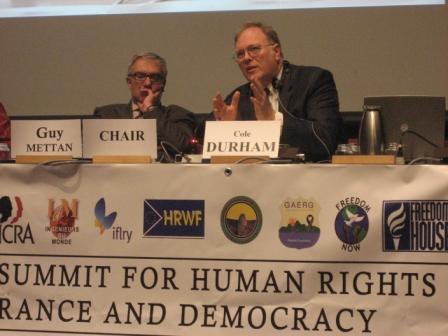
March 2010 – Geneva
The second Geneva Summit for Human Rights, Tolerance and Democracy was held 8-9 March 2010, “in parallel [with] and to enhance the main annual session of the UN Human Rights Council.” Organized by an international coalition of human rights NGOs and co-chaired by Mr. Lech Walesa and Mr. Vaclav Havel, the Summit was planned “to offer dissidents and human rights activists from around…
European Court Declares Article 9 Issue in Jehovah’s Witness Tax Case Admissible
September 2010 – Strasbourg
The European Court of Human Rights has issued a second admissibility decision in the case Association Les Témoins de Jéhovah (Association of Jehovah’s Witnesses) v. France. The Association alleges that a 1995 French parliamentary report classifying it as a sect resulted in discrimination against the organization, in particular resulting in a tax audit. When the Association declined to declare donations for the requested years, asking instead for the tax exemption granted liturgical associations, an automatic taxation procedure was begun against the Association. After failing to prevail in the French courts, the Association brought the matter before the ECtHR in Feburary 2005, alleging violation of numerous ECHR provisions. On 17 June 2008 the Court declared all complaints inadmissible except those alleging that the tax proceedings against the Association infringed Articles 9 and 14. On 21 September 2010 the Court declared the Article 14 religious discrimination complaint inadmissible, as domestic remedies had not been exhausted. The Court considered, however, that the Article 9 complaint of infringement of the right to freedom of religion “raised complex issues of fact and law which could not be resolved at this stage … but required examination on the merits.” The Court thus declared this part of the complaint admissible and will deliver its judgment on the merits at a later date. As reported in the Court’s press release, the European Association of Jehovah’s Christian Witnesses emphasized “the impact which the present case could have in other European countries.”
Grand Chamber Judgment Issued in Jehovah’s Witness Conscientious Objector Case

5 October 2011 – Conscientious objection at the European Court of Human Rights: Comments on the Bayatyan v. Armenia judgment and some other pending cases, by Grégor Puppinck, Ph.D., Director of the ECLJ
7 July 2011 – Strasbourg : The Grand Chamber has issued its judgment in Bayatyan v. Armenia, heard in Strasbourg on 24 November 2010. Contrary to the Court’s 2009 Chamber Judgment, the Grand Chamber found a violation of ECHR Article 9 (right to freedom of religion or belief) in the conviction of Mr. Vahan Bayatyan, a Jehovah’s Witness and Armenian national, for…
Indonesian Constitutional Court Upholds Controversial Blasphemy Law
April 2010 – Jakarta
The Constitutional Court of Indonesia has on 19 April 2010 rendered judgment 8-1 on a civil society appeal to strike down Law No. 1/PNPS/1965 on Abuse and/or Defilement of Religions. Noting that the law does not bar other religions from being practiced but simply protects those religions covered by the law, the Court asserts that the law exists “to protect all religions from desecration and to ensure religious harmony between faiths.” Ahead of the ruling, Minister of Religious Affairs Suryadharma Ali had asserted…
European Court Grand Chamber Hears Controversial Italian Crucifix Case
29 June 2010 – Strasbourg
In a “case that may prove a flashpoint in the religious history of Europe,” the Grand Chamber of the European Court of Human Rights heard the controversial Lautsi v. Italy on 29 June 2010. The ruling is expected some time in the fall. The European Centre for Law and Justice, who had been granted official third-party status by the Court, issued a report of the proceedings: Counsel for the applicant, Soile Lautsi, argued in favor of “secularism” and against the “tyranny of the majority.” The Italian government argued in defense of religious freedom and of its “right to express its unique heritage and identity through the display of crucifixes in state funded schools.” Other observers had expressed concerns over the implications of this case for the jurisdiction of the Court.
New York University Professor Joseph Weiler spoke to the Court in behalf of ten member states of the Council of Europe whose governments had been granted third-party status (see below), insisting that “tolerance toward one view should not lead to intolerance against others” and calling for respect for the rich diversity of Europe, including national symbols and cultural identities. Ms. Lautsi’s position, however, is that “laïcité,”legally required secularism in the public sphere, is necessary for true religious freedom for all.
Catholic News Agency reported that after the three-hour hearing, the Italian government felt optimistic; the Italian foreign minister Franco Frattini said Italy had “everything in order to ensure a positive result.”
In its original judgment of November 2009 (issued in French only) a panel of seven judges of the Court found for the applicant, Soile Lautsi, who complained that the presence of the crucifix in school classrooms violated the principle of secularism by which she wished to bring up her children. In March 2010 the Court announced its acceptance of Italy’s request for referral of the case to the Grand Chamber.
The case, which concerns not only issues of freedom of religion or belief but also the scope of the Court’s jurisdiction, has elicited considerable debate in Europe and elsewhere. In accordance with article 36 of the European Convention, the President of the Court authorized written observations from the following third parties seeking to intervene in the case:
- Governments of Armenia, Bulgaria, Cyprus, Greece, Lithuania, Malta, Monaco, Romania, the Russian Federation, and San-Marino (in behalf of Italy) [Eight of the ten governments were granted the right to intervene during the hearing.]
- Jointly 33 members of the European Parliament (in a memorandum by Alliance Defense Fund, in behalf of Italy)
- Greek Helsinki Monitor (in behalf of Applicant)
- Associazone nazionale de libero Pensiero (in behalf of Applicant)
- European Centre for Law and Justice (in behalf of Italy)
- Eurojuris (in behalf of Italy)
- Jointly: International Commission of Jurists, Interights, Human Rights Watch (In behalf of Applicant)
- Jointly: Zentralkomitee des deutschen Katholiken, Semaines sociales de France, Associazioni critiane lavoratori italiani (in behalf of Italy)
Others seeking to intervene but rejected by the Court included
- The European Humanist Federation (in behalf of Applicant)
- A coalition of Law Professors sponsored by the Becket Fund for Religious Liberty and headed by Professor Paolo Carozza (in behalf of Italy)
Jewish Scholar Enters Debate over Morocco’s Deportation of Christians
29 June 2010 – Bulletin
Menachem Z. Rosensaft, General Counsel of the World Jewish Congress and Adjunct Professor of Law at Cornell Law School, has entered the debate over Morocco’s deportation of some 100 Christians accused of proselytism, which is illegal in Morocco. Writing as a Guest Voice in the “On Faith” column of the Washington Post, Professor Rosensaft makes arguments in defense of Morocco. The column, with accompanying comments, may be read in the 29 June 2010 online edition of the Post. Our original 15 June report on U.S. response to the deportations follows.
June 2010 – Washington, D.C. and Casablanca
U.S. Representative Frank Wolf (R., Va.), co-chairman of the Tom Lantos Human Rights Commission, has on 15 June 2010 announced his intention to hold congressional hearings investigating the sudden deportation in March and April of more than 100 Christian humanitarian and social workers, educators, and businessmen, many of them Americans and some long-term residents with deep roots in the community. One immediate concern of Rep. Wolf is whether the U.S. should suspend its pledge of nearly $700 million in aid to Morocco under its Millennium Challenge Corporation compact (MCC), which includes an eligibility indicator of a government’s “ruling justly.”
The deportations apparently were triggered by complaints that some of the Christians were actually American missionaries who were secretly spreading Christianity among the poor. Charges were also made that a private American school (George Washington Academy) near Casablanca, advertised as secular, was inculcating Christian beliefs in students. Morocco’s U.S. Ambassador Aziz Mekouar explained to the U.S. Commission on International Religious Freedom that though conversion to Christianity is not a crime in Morocco, proselyting is. The deportation of the Christians, he explained, was necessary for the maintenance of public order.
In 1777 the Sultan of Morocco wrote to George Washington at Valley Forge, announcing that his nation would open its ports to American ships, which would “enjoy in them the same privileges and immunities as those of other nations.” Morocco thus became the first nation to recognize the new United States. The 1787 Treaty of Marrakech, marking peace and friendship between the two nations, is still in force, making it the longest unbroken treaty in the U.S history. The sparring over religious freedom issues, however, seems to be straining the relationship.
On 17 June, three Evangelical Protestant ministers made public comments, hoping to “present a fair and balanced picture of this unusual country” and thanking Morocco for being “a long-time friend to Christians and Americans — even when threatened for doing so.” Today, they note, “Morocco is a key ally in combating global terror.” As National Clergy Council president, the Reverend Rob Schenck observed, “Morocco is virtually unique in the Arab-speaking world. It has consistently topped the lists of religiously tolerant Islamic countries. Large numbers of Christians have lived and worked in Morocco for centuries. Hundreds of Christians continue to live in Morocco today. The relatively young King Mohammed VI has led unprecedented reforms in human rights, women’s rights and family law. Of the more than 40 countries I have visited, Morocco is by far one of the most friendly and hospitable.”
Recently expelled Christians, however, point to an increasingly fearful climate in Morocco, and a changing definition of proselytism, a definition motivated by a rising number of Christian converts, a definition that, they say, puts Christians in peril for “showing love.”
High Court Rules that Bangladesh is a Secular State
October 2010 – Bangladesh
Joseph Hepworth
The Bangladesh High Court ruled on October 4, 2010, that Bangladesh is a secular state since the original constitution of 1972 has been automatically restored following the Supreme Court ruling on the fifth amendment. As a secular state, everybody has religious freedom, and therefore no man, woman or child can be forced to wear religious attires like burqa, cap and dhuti, the High Court ruled. But nobody could be prohibited from wearing religious attires if he or she wishes to wear those, it said.
South Korea Private Prison Faces Criticism of Religious Discrimination
September 2010 – South Korea
Joseph Hepworth
The Christian Agape Foundation, a religious-based organization, intends to reduce recidivism by operating a private prison using Christian principles. Officials claim that a test reform program run Yeoju Prison over six years reduced recidivism to 6 percent. The prison has been criticized for discrimination based on religion and equal protection. All inmates detained at the prison must consent to abide by the Christian-based reform program. Construction on the nearly-complete prison has stopped because of lack of funds.
Canadian Court Holds that Religious-based Organization Can Require Employees to Adhere to a Moral Code
May 2010 – Ontario
The Ontario Divisional Court (the “ODC”) has issued its ruling in the case of Heintz v. Christian Horizons, a decision on appeal from the Human Rights Tribunal of Ontario (the “HRTO”), and termed a “landmark case of religious freedom.” Christian Horizons required all of its employees, including Connie Heintz, to sign a code of moral conduct. One provision of the code banned sexual relationships outside of heterosexual marriage, and when Ms. Heintz subsequently entered a gay relationship, her employment was terminated. She filed a complaint with the HRTO, which found in her favor. On appeal, the ODC held that a religious-based organization can require its employees to adhere to a moral code, even though the organization may serve people not affiliated with the particular religion. However, rather peculiarly, the ODC also held that, given the nature of Ms. Heintz’s position, she was not required to adhere to the code.
According to National Post columnist Scott Maniquet, the ruling “has cleared up the general principle of the rights of faith-based charities to form religious codes of conduct for their staff, but clarified little about how that should work in practice or whether it sets a clear precedent for future conflicts.” John Pellow, head of the Canadian Council of Christian Charities, which represents 3,000 charitable organizations, observed: “We have a team of lawyers trying to figure it out. We don’t know what it means [in practice] for our groups.”
Israel’s Ultra Orthodox Protest Supreme Court Ruling against Segregation
June 2010 – Jerusalem
Joseph Hepworth
Tens of thousands of Hasidic Jews took to the streets in Jerusalem to accompany dozens of parents who were on their way to prison for two weeks after refusing to comply with a Supreme Court ruling against ethnic segregation in their children’s school. They protested against what they see as the state’s meddling in their conviction that the religious law of the Torah transcends the ruling of the Israeli Supreme Court.
According to the New York Times, the dispute arose in a state-financed girls’ elementary school in Immanuel, an ultra-Orthodox settlement in the northern West Bank. The settlement, with a population of about 3,000, has a majority of Sephardic Jews, as does the school, Beit Yaakov. About three years ago, a group of Ashkenazi parents, who said they followed stricter religious practices than some of the Sephardim did, set up a separate educational track within the school, called the Hasidic track. A wall went up inside the building, and to prevent any social mixing the playground was split by a fabric-covered fence. A Sephardic activist in Jerusalem petitioned the Supreme Court, which ruled in August 2009, citing Brown v. Board of Education in the United States, that the Hasidic track amounted to ethnic segregation. After the parents of the Hasidic track refused to send their daughters to school with the rest of the Sephardic pupils, they were found to be in contempt of court and sent to prison for two weeks.
Conference on “Religion, Law and Governance in Southeast Asia: Comparative Legal Perspectives” – Malaysia

January 2010 – Kuala Lumpur
Representatives from the International Center for Law and Religion Studies at BYU, including International Advisory Council Chair Duane Madsen, ICLRS Historian Erlyn Madsen, IAC member Linda Nearon, and ICLRS Managing Director Robert T. Smith, participated in a very successful conference in Kuala Lumpur, Malaysia, during 29-31 January 2010. Addressing “Religion, Law and Governance in Southeast Asia: Comparative Legal Perspectives,” the conference was co-sponsored by the Center in cooperation with the International Institute of Advanced Islamic Studies (IAIS), the Faculty of Law of the University of Malaysia, and the Institute of Advanced Legal Studies of Amity University (India). The conference Keynote Address by YAB Prime Minister of Malaysia, Dato’ Sri Mohd Najib Tun Abdul Razak was delivered by Tan Sri Muhyiddin Yassin, Deputy Prime Minister of Malaysia. Among some 20 presenters at the conference were ICRLS Director W. Cole Durham, Jr., and Associate Director Brett G. Scharffs, who delivered papers on “The Role of Religion and Law in Fostering Good Governance” and “Comparative Religion-State Systems,” respectively.
Other experts from Southeast Asian countries, India, Europe, and America discussed the following topics:
- Theoretical and Constitutional Issues Shaping Religion-State Relations
- Legal Regulation of Religion; Scope of Permissible Limitations
- Autonomy of the State and Religious Communities
- Majority-Minority Relations: Promoting Enhanced Relationship
- Religion, Family and Gender Issues
- Religious Education and Youth
In Surprise Move, Spain Senate Passes Burqa Ban
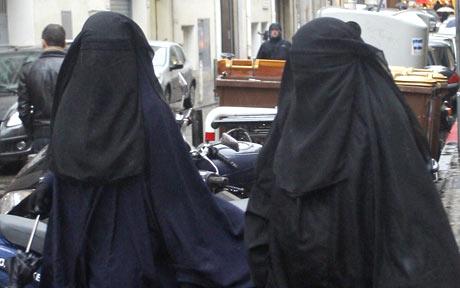
July 2010 – Madrid
In a significant escalation of Spain’s debate over how to handle radical Islam, the Senate on Wednesday, 21 July 2010, narrowly and unexpectedly approved a motion to ban Muslim women from wearing in public the burqa or other garments that cover the whole body. The vote, 131 to 129, was another setback for the Socialist government of Prime Minister José Luis Rodríguez…
United Nations Adopts Controversial Resolution about Religion in Media
June 2010 – Geneva
Jospeh Hepworth
The United Nations Human Rights Council has adopted a resolution sponsored by the Organization of the Islamic Conference (OIC) that creates a watchdog to monitor how religion is portrayed in the media. The resolution allows the Human Rights Council to select a special investigator on religious freedom to “work closely with mass media organizations to ensure that they create and promote an atmosphere of respect and tolerance for religious…
European Governments and Quebec Move to Ban Full-Face Covering in Public
May 2010 – Europe and Quebec
The lower house of the Belgian parliament, with near unanimity, has on 29 April 2010 passed a bill authorizing a nationwide ban on clothes or veils that do not allow the wearer to be fully identified, including the full-face niqab or burqa. Penalties would include fines and jail sentences of up to a week. The bill is expected easily to pass the upper house of parliament, which officially had two weeks to raise objections. At this point, Belgium would become the first European country to ban the burqa. The late-April collapse of the Beligan government, however, over disputes between French and Flemish speakers concerning political and language rights, could postpone a final decision indefinitely. Belgium is slated to take over the rotating presidency of the European Union on 1 July 2010.
In March 2010 the Canadian province of Quebec passed a bill proscribing face cover by anyone employed by the state or receiving services from the state. In France, President Nicolas Sarkozy has publicly denounced the wearing of the full veil, calling it an affront to French values and a denigration of women. On 11 May 2010 the French parliament passed a nonbinding resolution supporting a ban of the full veil, and draft legislation was introduced the following day. Also in early May a Muslim woman in norther Italy was fined under anti-terrorism laws for wearing a black niqab in public, and members of the anti-immigration Northern League are said to be pushing for a full ban of Islamic face-covering garments in public. Similar movements have arisen in Germany, but German Interior Minister Thomas de Maiziere has dismissed calls for full-veil banning as “inappropriate and therefore unnecessary.”
Meanwhile Amnesty International has joined with Muslim voices in opposition to the bans, calling them violations of freedom of religion and freedom of expression that set dangerous precedents. In an open letter of 12 May to the members of the European Parliament, the European Forum of Muslim Women writes, “Besides ignoring fundamental freedoms, these legislations are useless and dangerous.”
Russian Prosecutors Find Scientology Writings to be Extremist Literature
April 2010 – Moscow
The Prosecutor General’s Office of the Russian Federation announced on Wednesday, 22 April 2010, that works by the founder of Scientology, L. Ron Hubbard, will be added to the country’s list of extremist literature, and will be banned for “undermining the traditional spiritual values of the citizens of the Russian Federation.” Prosecutors in Siberia reported that they intercepted “28 individual titles, including books, audio and video recordings by Hubbard that were sent to residents in Surgut from the United States.” The materials were sent for study to “psychiatrists, psychologists and sociologists,” who determined that they should not be distributed in Russia.
Only six weeks previously, on 1 March 2010, an October 2009 ruling by the European Court of Human Rights in favor of Russian Scientologists (Kimlya v. Russia, application nos. 76836/01 and 32782/03) became final. This new ruling, initiated by transport prosecutors in Surgut and customs officers in Khanty-Mansiisk, opens a new legal front in Russia against the Church of Scientology, even as it highlights Russia’s hotly debated law on extremism.
UNHRC Votes by Narrower Margin to Condemn “Defamation of Religion”
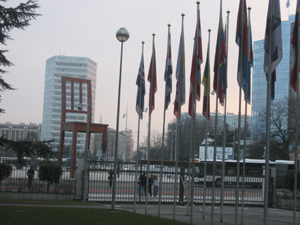
March 2010 – Geneva
The United Nations Human Rights Council has on 25 March 2010 passed by a narrow margin (20-17, with 8 abstentions) a non-binding resolution condemning “defamation of religion.” The resolution, proposed by Pakistani representative Zamir Akram on behalf of the Organization of Islamic Conference (OIC), includes a strong condemnation of such activities as Switzerland’s recent ban on the construction of minarets on mosques, a ban approved in a nationwide vote last November. In the…
European Court of Human Rights Refers Lautsi v. Italy to Grand Chamber
April 2010 – Strasbourg
In response to an appeal filed by the government of Italy on 28 January 2010, a panel of five judges of the European Court of Human Rights announced on 2 March that its recently decided case, Lautsi v. Italy, will be examined by the Grand Chamber. On 8 April, the date for the Grand Chamber hearing was announced: Wednesday, 30 June. The Court’s controversial ruling of 3 November 2009, banning crucifixes in state-run schools, resulted from the complaint of an Italian mother affronted by religious symbols that she…
Human Rights Pioneer Kevin Boyle Passes Away
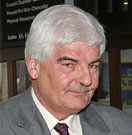
December 2010 – United Kingdom
Internationally respected human rights lawyer Kevin Boyle, emeritus professor of law, Essex University, died of cancer on Christmas Day, 25 December 2010. Professor Boyle, regarded as one of Ireland’s and the UK’s leading human rights academics, was one of the founders of the civil rights movement in Northern Ireland. He was, said Galway Professor William A. Schabas, writing in tribute at Boyle’s death, “one of the great human rights lawyers of our time.” He brought hundreds of cases before the European Court of Human Rights against Turkey on behalf of Kurdish villagers suffering human rights violations in Turkey, laying groundwork for scholars and practitioners in the evolving field of international…
French Council Rules that Law Banning Full-Face Veils Conforms with Constitution
Bulletin 7 October 2010: The French Constitutional Council has ruled that a law making it illegal to wear full face veils in public conforms with the French Constitution. Decision (in French).
Bulletin 14 September 2010: The “burqa ban” has passed the French Senate by a vote of 246 to 1.
Bulletin 13 July 2010: The lower house of the French parliament has by a vote of 335 to 1 passed the ban on full-face veils. A vote is expected by the Senate in late…
Historic Religious Freedom Law Ratified in Peru

December 2010 – Lima
President Alan Garcia has ratified an historic law aimed at preventing religious discrimination in Peru. “This law confirms and states that we are a society of believers, a society that has immense faith,” Garcia said, as reported 22 December 2010 in the Peruvian Times. “The Catholic church, for its history, has a lot of weight in the citizenry, but other religions and churches have space and have been increasing recruitment…
Churches Meet in Vienna to Commemorate International Migrants Day
December 2010 – Vienna
In commemoration of International Migrants Day on 18 December, representatives of churches from across Europe met for two days in Vienna to analyze contemporary achievements and challenges in the area of migrants’ rights in Europe. The 17-18 December conference also highlighted activities of European churches responding to migration. For more information, read the pre-conference Press Release: “The year of European Churches responding to migration 2010 has aimed…
Heiner Bielefeldt: Limitations on Religious Freedom Have “Chilling Effect”
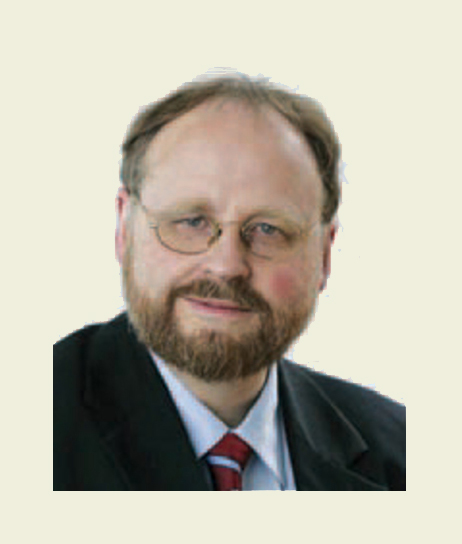
In a statement published 15 November 2010 in New Europe, Heiner Bielefeldt, United Nations Special Rapporteur on freedom of religion or belief, underscored the “broad scope of application” of freedom of religion or belief, a scope which should include groups and communities large and small, old and new, and which protects “theistic, non-theistic and atheistic beliefs, as well as the right not to profess any religion or belief.” Many people worldwide are excluded from such protection, noted Mr. Bielefeldt, and live vulnerable to restrictions and discrimination impacting not only religious choices but also employment and family life, including marriage. Noting that Article 1 of the Universal Declaration of Human Rights stresses that “all human beings are born free and equal in dignity and rights,” Bielefeldt reiterated the obligations of all States to combat all forms of discrimination…
“Culture and Justice in the Contemporary World,” 16th Annual Conference of ISAPS
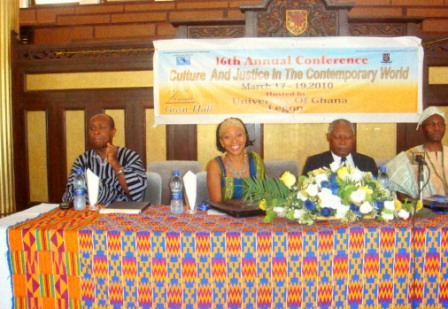
March 2010 – Legon, Ghana
The 16th Annual Conference of the International Society for African Philosophy and Studies (ISPAS) took place in The Great Hall of the University of Ghana in Legon on 17-19 March 2010. The conference, “Culture and Justice in the Contemporary World,” was organized in collaboration with the University of Ghana’s Philosophy Department and its Faculty of Law under the co-chairmanship of Professors Kofi Quashigah (Law) and Helen Lauer (Philosophy). The conference examined “the validity of international standards in our multicultural and diverse world,” asking the question, “Is justice possible in a world where there are diverse standards, cultures, values and other socio-cultural norms?” A plenary address at the conference was delivered by the Honourable Samia Nkrumah, Member of Parliament Jomoro Constituency, Ghana. The Keynote Speaker was Nana Dr. Kobina Nketsia V, the Omanhene of Essikado Traditional Area, Stooled in Sekondi Central, Ghana. The Olusegun Oladipo Memorial Lecture was delivered by Professor Kwesi Yankah, Pro Vice Chancellor, University of Ghana, and closing remarks were given by Professor Kofi Anyidoho, Kwame Nkrumah Chair in African Studies, University of Ghana. Among the many panel participants was Professor W. Cole Durham, Jr. of Brigham Young University, who addressed the topic “Defamation of Religion and the Philosophy of Human Rights.”
European Court Issues Rulings in Two German Church Employment Cases
September 2010 – Strasbourg
In diverse judgments in the cases of Obst v. Germany (no. 425/03) and Schüth v. Germany (no. 1620/03), the European Court of Human Rights on 23 September 2010 “for the first time addressed the dismissal of Church employees on grounds of conduct falling within the sphere of their private lives,” according to a Court press release. Both cases dealt with the rights of religious communities to self-determination in dealing with their personnel where their employees fail to abide by standards of conduct fundamental to the communities’ doctrines and beliefs. In the case of Obst the Court unanimously found no violation of Article 8 of the European Convention (right to respect for private and family life) and in Schüth unanimously found a violation of Article 8 had occurred.
Both cases concerned German nationals dismissed from their church employment for engaging in extra-marital relationships. In Schüth, the applicant served as organist and choirmaster in the Catholic parish of St Lambert in Essen at the time of his dismissal. In Obst the applicant served in a high-profile position as director of European public relations for The Church of Jesus Christ of Latter-day Saints (the Mormons), of which he had long been a member. Both applicants argued that dismissal from their employment violated Article 8.
According to the press release, the Court sustained lower court judgments in the Obst case because
“the German labour courts had taken account of all the relevant factors and undertaken a careful and thorough balancing exercise regarding the interests involved. They had pointed out that the Mormon Church had only been able to base Mr Obst’s dismissal on his adultery because he had informed the Church of it by his own initiative. According to the German courts’ findings, his dismissal amounted to a necessary measure aimed at preserving the Church’s credibility, having regard in particular to the nature of his post. The courts had explained why the Church had not been obliged to inflict a less severe penalty, such as a warning, and they had underlined that the injury suffered by Mr Obst as a result of his dismissal was limited, having regard among other things to his relatively young age.”
In the case of Schüth, however, the German courts had not balanced the full range of interests at stake, having focused primarily on the applicant’s interest in keeping his post without addressing his privacy interests. The German courts had addressed the fact that although the applicant’s “functions as organist and choirmaster did not fall within the group of employees who in case of serious misconduct had to be dismissed, namely those working in counselling, in catechesis or in a leading position, his functions were nonetheless so closely connected to the Catholic Church’s proclamatory mission that the parish could not continue employing him without losing all credibility.” On the other hand, the Court had not adequately addressed “Mr Schüth’s de facto family life,” which he had established with a new partner after the separation from his wife. “The interests of the Church employer had thus not been balanced against Mr Schüth’s right to respect for his private and family life, but only against his interest in keeping his post.” The Court also emphasized that, given the specialized nature of his work as a church musician, Mr Schüth “had only limited opportunities of finding another job.”
The Obst judgment upholds earlier decisions by the German Federal Labor Court and the Federal Constitutional Court, which have affirmed long-standing constitutional principles under Germany’s Basic Law protecting the right of religious communities to independence and autonomy in their affairs (Selbständigkeit in ihren Angelegenheiten, see Article 137 of the Weimar Constitution, incorporated into the current Basic Law of Germany by Article 140), including the right of churches to structure contractual relations with their employees in ways that are consistent with the religious beliefs of the community and that impose reasonable expectations of loyalty to these principles that are clearly understood when the employment relationship is established.
In contrast, although the Court “reiterated that the autonomy of religious communities was protected against undue interference by the State under Article 9,” Schüth calls for a more explicit balancing of the full range of interests involved. Exactly how that balancing is likely to come out in individual cases will depend on a variety of factors mentioned in the two cases. These include: (1) voluntary assumption of obligations of loyalty to the hiring institution; (2) the range of alternative employment available to the dismissed employee; (3) the importance attached to the conduct in question by the religious community (or other belief, ideological or ethos society); (4) the nature of the employment and its place in carrying out the mission of the organization; (5) the effect of continued employment on the credibility of the religious community in affirming and living by its teaching; (6) whether less drastic measures might suffice; (7) the right of a religious community to independence in its own affairs; and (8) the family and privacy rights of the discharged individual.
The opinions indicate that countries will have a substantial margin of appreciation in assessing these and other relevant factors. The cases have broad implications for treatment of personnel matters in religious, ideological, and ethos organizations, as well as for broader issues concerning the right to religious autonomy.
For more information, please click the links Obst and Schüth to view the cases (issued initially in French only), as well as related documents, including English, French, and German versions of the Court press releases, and, while we await official translations, Google translations of the rulings into English.
ECtHR Considers Application in Russian Biblical Center Dissolution Case
September 2010 – Strasbourg
The European Court of Human Rights has agreed to consider the 2008 application of the Biblical Center of the Evangelical (Pentecostal) Christians of the Chuvash Republic and consequently on 2 September 2010 has communicated the case to the Russian government. The Center is a religious organization founded under Russian laws in 1991 and dissovled by government order in 2007. One of the Center’s activities was the establishment of educational institutions for training of clergymen; accordingly the Center in 1996 opened a Bible school, the premises of which were used on Sundays by parent members of the organization to teach their children. In 2007 a local prosecutor conducted inspections of the facility claiming concern over fire and safety regulations, reporting that the facilities were “not adequate to provide students with a comfortable working space, the benches are self-made; the walls are covered with paper and difficult to clean, the windows are decorated with flower pots; and the doors to the restrooms lack appropriate locks.” He also claimed violations of the nation’s education laws, since the church was not licensed to operate as an education institution.
The Biblical Center countered that religious education and religious teaching of its followers were integral parts of the activities of every religious association and furthermore that the alleged sanitary violations could not be the basis for dissolution of the organization because the sanitary standards apply only to educational facilities, and the Bible school and Sunday school were not educational facilities but tools used to teach members of the faith about the faith. The Center also alleged discrimination in the fact that the Russian Orthodox Church was not required to obtain an educational license. Russian courts ruled against the Centre and ordered it dissolved. The ECtHR has agreed to hear the applicant organization’s complaints under Article 9, read in the light of Article 11, alone and in conjunction with Article 14, that the State violated its right to spread religious views through religious education of fellow believers and that the State took a decision on the applicant’s dissolution.
The Center has elicited the help of the Slavic Center for Law and Justice in pursuit of the matter.
Russian-Language Launch of Freedom of Religion or Belief: A Deskbook
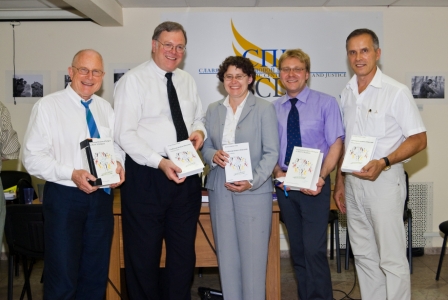
August 2010 – Moscow and Kyiv
On 3 and 5 August 2010, the Russian translation of Facilitating Freedom of Religion or Belief: A Deskbook was launched in events held in Moscow and Kyiv. This unique collection of articles by leading scholars and experts in the field of religion and law from around the world is designed as a single-volume resource for all who are concerned with facilitating improved global compliance with international standards in freedom of religion or belief (FORB). A focus of the work is the protection of freedom of conscience in the Council of Europe, through the jurisprudence of the European Court of Human Rights….
European Commission and CoE Open Talks on EU Accession to ECHR
July 2010 – Strasbourg
At a joint meeting of the European Commission and the Council of Europe held 7 July 2010 in Strasbourg, Council General Secretary Thorbjørn Jagland and Commission Vice-President Viviane Reding announced the opening of official talks on the European Union’s accession to the European Convention of Human Rights (ECHR). The hope is to “move the process forward so…
Law Professors Rejected as Interveners in Lautsi
June 2010 – Strasbourg
Among those seeking to intervene in advance of the 30 June 2010 Grand Chamber hearing in the European Court of Human Rights case Lautsi v. Italy were a number of law-professor signatories to a friend-of-the-court brief sponsored by The Becket Fund for Religious Liberty. In an intervention announced on 24 May 2010 and now rejected by the Court, the initial submission…
European Religious Leaders Continue to Speak against Lautsi Ruling
June 2010 – Europe
As the 30 June Grand Chamber hearing of “the Italian Crucifix Case” (Lautsi v. Italy) approached, governments and religious leaders across Europe continued to express concerns about the outcome. Cardinal Keith O’Brien, head of the Roman Catholic Church in Scotland has called upon the European Court of Human Rights to “uphold the principles of freedom and tolerance,” asserting that…
PACE Resolution on Veiling of Women, Construction of Minarets
23 June 2010 – Strasbourg
Rainer Bless
The Parliamentary Assembly of the Council of Europe (PACE) has said that there should be no general prohibition on wearing the burqa and the niqab or other religious clothing, although legal restrictions may be justified “for security purposes, or where the public or professional functions of individuals require their religious neutrality, or that their face can be seen.” The unanimously adopted resolution said the veiling of women is often perceived as “a symbol of the subjugation of women to men” but a general ban would deny women “who genuinely and freely desire to do so” their right to cover their face. The Parliamentary Assembly added that European governments should also seek to educate Muslim women, as well as their families and communities, on their rights and encourage them to take part in public and professional life. The Assembly also called on Switzerland to repeal as soon as possible its general ban on the construction of minarets, which it described as discriminatory.
European Court Finds for Austria in Same-Sex Marriage Case
24 June 2010 – Strasbourg
The European Court of Human Rights has on 24 June 2010 issued its judgment in the case Schalk and Kopf v. Austria. Applicants are Austrian nationals, a same-sex couple. They alleged that the legal impossibility for them to marry in Austria violated their right to marry, as protected under Article 12 of the European Convention on Human Rights (ECHR). They also invoked Article 14 (prohibition of discrimination) in conjunction with Article 8 (their right to respect for private and family life.) The Court, observing that there is at present no consensus among Council of Europe member States regarding same-sex marriage, held that Article 12 does not impose an obligation on governments to grant same-sex partners access to marriage. Moreover, while granting that the relationship of the applicants fell within the Article 8 meaning of “private and family life,” nevertheless, given that the Convention is “to be read as a whole,” the Court could not find with the applicants that the anti-discrimination requirements of Article 14, taken in conjunction with Article 8, could impose an obligation under Article 12 that a State grant a right to same-sex marriage.
In a blogpost of 24 June 2010, Antoine Buyse (ECHR blog) of the Netherlands Institute of Human Rights (SIM), Utrecht University, has observed that the government of the United Kingdom intervened in the case on the side of Austria and that four NGOs (ICJ, FIDH, AIRE Centre and the European Region of the International Gay and Lesbian Association) intervened on the side of the applicants.
European Court Issues Judgment in Turkish Church Land Restitution Case
June 2010 – Strasbourg
On 15 June 2010, the European Court of Human Rights issued judgment for just satisfaction in the case Fener Rum Patrikliği (the Ecumenical Patriarchate) v. Turkey. The applicant is a Christian Orthodox church in Istanbul representing the Orthodox minority in Turkey. In a judgment of 8 July 2008 the Court held that the Turkish authorities were not entitled to deprive the applicant of its property (specifically the Büyükada Greek orphanage for boys) without providing appropriate compensation. To that date the church had not received any compensation, and it had therefore had to bear an individual and excessive burden, entailing a violation of Article 1 of Protocol No. 1 (protection of property) of the Convention. The Court at that time reserved judgment on the question of the application of Article 41 (just satisfaction), finding it not ready for decision. In the ruling for Just Satisfaction of 15 June 2010, the Court held that Turkey had to reregister the property in question in the land register in the applicant’s name and to pay to the applicant EUR 6,000 for non-pecuniary damage and EUR 20,000 for costs and expenses.
Heiner Bielefeldt Appointed Special Rapporteur for Freedom of Religion or Belief
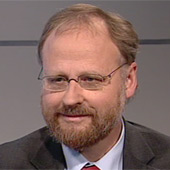
June 2010 – Geneva
The mandate of the United Nations Special Rapporteur for Freedom of Religion or Belief having been extended for another three years, a new Rapporteur was named at the closing meeting of the fourteenth regular session of the United Nations Human Rights Council in Geneva on 18 June 2010. The the German Catholic theologian, philosopher, and historian, Professor Dr. Heiner Bielefeldt, Chair in human rights and human rights policies of the Friedrich-Alexander University Erlangen-Nuremberg, was appointed to replace Pakistani lawyer …
Miguel d’Escoto Brockmann Named to UNHRC Council Advisory Committee
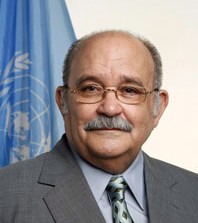
June 2010 – Geneva
Father Miguel d’Escoto Brockmann, formerly president of the United Nations General Assembly, has been elected by acclamation to the Advisory Committee to the United Nations Human Rights Council. A Roman Catholic priest from Nicaragua, d’Escoto served as foreign minister in Daniel Ortega’s government from 1979 to 1990. D’Escoto fills the vacancy on the Committee…
Debate Intensifies as “Crucifix Issue” Is Set for Hearing before Grand Chamber
June 2010 – Strasbourg
Requests continue for third-party intervention in the European Court of Human Rights Grand Chamber hearing of Lautsi v. Italy, scheduled for 30 June 2010. A proposed intervention of 23 May 2010 by the European Humanist Federation, representing secularist and humanist organizations across Europe, is among those whose requests for intervention have been rejected by the President of the Court. Writing in support of the original judgment by seven-judge panel of the Court, the EHR document notes that the crucifix is “a very powerful image and potentially a highly disturbing one to put before children,” one that represents “a religious doctrine, not a fact.” Its display in public classrooms is therefore not compatible with the…
UNHRC Adopts Resolution Concerning Mandate of Special Rapporteur
June 2010 – Geneva
Adopted by consensus during the fourteenth regular session of the United Nations Human Rights Council, held 31 May – 18 June in Geneva, was a Resolution (A/HRC/14/L.5/Rev. 1) concerning the Mandate of the United Nations Commission on Human Rights’ Special Rapporteur for Freedom of Religion or Belief. An initial draft resolution of 7 June was followed by a revised draft of 9 June. A draft proposed by Spain (A/HRC/14/L.5) on behalf of the European Union on 11 June was revised after proposed amendments were submitted by Pakistan on behalf of the Organization of Islamic Conference (OIC) on 14 June. After most aspects of the OIC proposal were incorporated into the Resolution, Pakistan withdrew its proposal and the Resolution was adopted without a vote during the final meeting of the session, on 18 June 2010.
UN Human Rights Council Concludes its Fourteenth Session

June 2010 – Geneva
The United Nations Human Rights Council (UNHRC) has concluded its fourteenth regular session and released a summary of the meetings. The session, presided over by Ambassador Alex Van Meeuwen of Belgium, was…
Judgment Issued in Case of Iranian Christians Seeking Asylum in Turkey
June 2010 – Strasbourg
The European Court of Human Rights has issued its findings in the case of M.B. and Others v. Turkey, concerning the plight of four Iranian nationals who had converted to Christianity and, fearing ill-treatment or death in Iran, had sought asylum in Turkey. The following summary…
European Court Issues Ruling against Poland in School Ethics Course Case
June 2010 – Strasbourg
The European Court of Human Rights has issued judgment in the case of Grzelak v. Poland. In a Fourth Section judgment of 15 June 2010 the Court found by six votes to one a violation of Article 14 (prohibition of discrimination) in conjunction with Article 9 (freedom of thought, conscience and religion) of the European Convention on Human Rights. Unanimously, however, the Court held that the finding of a violation…
New Spanish Law Would Ban Burquas and Crucifixes in Public Places
June 2010 – Madrid
The government of Spain has announced a proposed new “religious freedom law” that would both ban the wearing of the Islamic burqa in public places and prohibit religious symbols like crucifixes or statues in state-owned buildings, including schools and hospitals. According to Spanish Minister of Justice Francisco Caamano, “things like the burqa … are hard to reconcile with human dignity and … especially pose problems of identification in public places.” Mansur Escudero, spokesman for Spain’s Islamic Commission, has noted that legislating against the wearing of the full veil undermines civil liberties. Though it may be “extravagant for a woman to wear a burqa as it in no way reflects a religious mandate, … if a woman wants to wear one, then why shouldn’t she?”
Muslims number approximately one million among Spain’s population of 47 million. Several towns in Catalonia, which has a large population of Pakistani Muslims, have already announced existing or planned bans on public wearing of the Islamic veil, and other areas, including Barcelona, and Coin in the southern region of Andalucia, are following suit.
European Court Rules Russian Jehovah’s Witnesses Ban Illegal
June 2010 – Strasbourg
The European Court of Human Rights has on 10 June 2010 issued a ruling in the case of Jehovah’s Witnesses of Moscow v. Russia. Unanimously finding violations of Article 9, 11, and 6 of the European Convention on Human Rights, the Court found no reason to examine separately the applicant community’s complaints of discrimination under Article 14, and rejected all others of the applicants’ complaints. At issue was the 2004 dissolution of a branch of the Jehovah’s Witnesses by the Russian government. The Court found that this action was unjustified and that the “sanction pronounced by the domestic courts was excessively severe in view of the lack of flexibility in the domestic law and disproportionate to whatever legitimate aim was pursued.” Accordingly, the Court ordered Russia to pay 70,000 euros in damages and costs. A summary of the Court’s findings may be read in the Press Release issued by the Registrar of the Court.
Judgment Issued in Dimitras and Others v. Greece Religious Oath Case
June 2010 – Strasbourg
In a unanimous First-Section judgment, the European Court of Human Rights has on 3 June 2010 issued its ruling in the case of Dimitras and Others v. Greece, consolidating applications lodged with the Court on 16 August 2006, 4 January 2007, 13 July 2007, and 11 January 2008 by three Greek nationals and one U.S. national. Applicants are legal representatives of the NGO the International Helsinki Federation who complained that in court proceedings of which they had been part the use of religious symbols in the courtroom, religious procedures (swearing on Bibles), and the religious bias of Orthodox Christian judges inhibited impartiality, violated their privacy, and constituted religious discrimination and violation of their rights to freedom of belief under Article 9 of the European Convention. The Court declared inadmissible or found it unnecessary to rule upon all of the applicants’ complaints except the Article 9 complaint, finding the requirement to reveal religious convictions in order to avoid taking a courtroom oath to be a violation of Article 9.
European Court of Human Rights to Hear Swiss Minaret Cases
June 2010 – Strasbourg
The European Court of Human Rights has on 11 May 2010 communicated two “minaret cases” to the government of Switzerland. Four Muslim organizations – Ligue des musulmans de Suisse, L’association culturelle des musulmans de Neuchâtel, Association Genevoise des Musulmans, and the Communauté musulmane de Genève – have made complaint to the Court that the ban on the construction of minarets in Switzerland contravenes the religious freedom and anti-discrimination guarantees of Article 9 and Article 14 of the European Convention of Human Rights. In a separate action, Hafid Ouardiri, an Algerian-born French citizen living in Switzerland, a Muslim and former spokesman at the Geneva mosque, similarly cites Article 9 and Article 14 violations, and also invokes Article 13, complaining of a lack of effective remedy…
Russian Jehovah’s Witnesses Make Application to the European Court
June 2010 – Strasbourg and Russia
In a press release of 2 June 2010, the Administrative Center of Jehovah’s Witnesses in Russia announced its application to the European Court of Human Rights, seeking redress for violations of rights to worship freely. The Court’s January 2007 ruling in favor of Jehovah’s Witnesses in Kuznetsov and Others v. Russian Federation found that officials in Chelyabinsk obstructed justice and denied freedom of religion when they raided and shut down a lawful Christian meeting of 150 deaf Jehovah’s Witnesses.
Since that time, however, conditions have not improved for Jehovah’s Witnesses in Russia. On December 8, 2009, the Russian Supreme Court dismissed the appeal of the Jehovah’s Witnesses…
Anniversaries: The Court at 50 and the Convention at 60

In 2009 the European Court of Human Rights marked the 50th anniversary of its founding as an institution designed to ensure that member states of the Council of Europe complied with their obligations under the European Convention of Human Rights. In celebration, the Court has launched a dynamic new website, including links to historical and foundational documents, instruments, reports, and other important texts; multimedia presentations; architectural descriptions and visual tours of the human rights building; and materials on past and projected reform of the Court.
Also noted in 2009 was the 60th anniversary of the Council of Europe, likewise…
Interventions Filed in Lautsi v. Italy Grand Chamber Hearing
May 2010 – Strasbourg
The European Court of Human Rights has received a number of requests for intervention in the case of Lautsi v. Italy, scheduled for hearing before the Grand Chamber on 30 June 2010.
1. On 12 May 2010 the Court authorized the intervention of the European Centre for Law and Justice (ECLJ), amicus curiae, in support of Italy’s position that the presence of the crucifix in Italian schools is legitimate. As noted in the ECLJ press release, the participation of third parties…
European Court of Human Rights Receives 2010 Four Freedoms Award
May 2010 – Middleburg, the Netherlands
The European Court of Human Rights has received the International Four Freedoms Award for 2010, given for the contributions to the protection of individual human rights in Europe over the past fifty years. The award was presented by Dutch Prime Minster Jan Peter Balkenende to Jean Costa, President of the Court, in a ceremony held on 29 May 2010 in the Nieuwe…
Debate over Full-Veil Bans Continues Worldwide
May 2010 – Europe, Canada, and Australia
As a bill restricting wearing of the full veil for identification purposes and when receiving public services has been passed in Quebec and similar legislation is awaiting final approval in Belgium, “burqa bills” are being prepared in France, Austria, the Netherlands, and Italy, with public demands for such legislation being heard in Denmark and Switzerland….
Article 19 Submits Brief in “Caution Religion!” Hate Speech Case
May 2010 – London and Strasbourg
The international organization Article 19: Global Campaign for Free Expression, has been granted permission by the European Court of Human Rights to intervene in the case of Yuriy Samodurov and Lyudmila Vasilovskaya v. Russia. In Written Comments dated 15 May 2010, Sejal Parmer, Article 19 Senior Legal Officer, address key legal issues in the case, including “the circumstances in which freedom of expression should…
ECtHR Decides Arslan v. Turkey, the Aczimendi Case
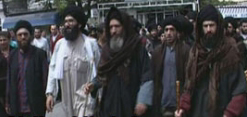
February 2010 – Strasbourg
In a decision of 23 February 2010, the European Court of Human Rights has ruled against Turkey in the case of Ahmet Arslan and Others. The case deals with the 1997 criminal conviction of 127 Turkish citizens, members of the religious order Aczimendi tarikatÿ, who were arrested in October 1996 while, wearing…
Professor Rik Torfs Elected to Belgian Senate – Brussels, 13 June 2010

Professor Rik Torfs, member of the Academic Advisory Board of the International Center for Law and Religion Studies, was on 13 June 2010 elected to the Belgian Senate, obtaining 143,603 votes, which is the ninth position of the 40 members elected directly. As reported in the online publication Flanders Today, Professor Torfs, “a professor in church law, who became a celebrity in spite of that,” was a “white rabbit” in the election, one chosen for fame outside of politics….